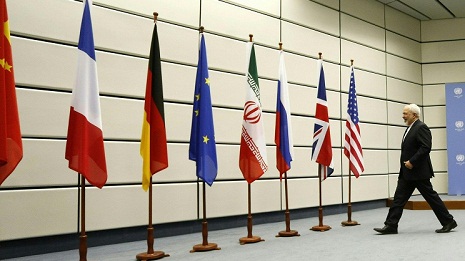Simultaneously, a new regime relaxing restrictions will be imposed that allows the transfer of items, materials, equipment, goods and technology required for Iran`s nuclear activities under the JCPOA with the preliminary consent of the UNSC. More than 30 persons and entities linked to Iran’s nuclear program and navigation will be relieved of financial sanctions.
"On the date ten years after the JCPOA Adoption Day, as defined in the JCPOA, all the provisions of this resolution shall be terminated," and none of the previous seven UN sanctions resolutions "shall be applied," the draft says.
"The Security Council will have concluded its consideration of the Iranian nuclear issue, and the item "Non-proliferation" will be removed from the list of matters of which the Council is seized," the text reads.
The draft also describes a "snapback" mechanism for sanctions if Iran violates the conditions of the deal with the international community. In case one of the JCPOA participant states finds "significant non-performance" of Tehran’s commitments under the accord, it may ask the UNSC to "vote on a draft resolution to continue in effect the terminations."
However during the vote, this country or any other UN Security Council permanent member state may veto this resolution and in this case all the previous sanctions will be automatically applied in 30 days.
Experts say that this uneasy mechanism meets the US interests in the first place. By changing the order of applying the veto right, Washington has received guarantees that there will be no such a scenario when China or Russia may block the decision on reimposing the sanctions.
The draft resolution is due to be discussed Thursday at the level of experts and then the date for the vote will be announced, a diplomat of a Western country part of the UNSC told TASS earlier. The vote is likely to be held already early next week.
Russia’s UN envoy Vitaly Churkin said the draft resolution on Iran is "one of the most complicated, impressing and interesting" ones in the Security Council’s history. The document was coordinated with the six major powers (five permanent UNSC member states plus Germany) in Austria`s Vienna and is ready to be adopted.
The diplomat said the UN Security Council is expected to endorse the resolution "unanimously."
More about:
















































